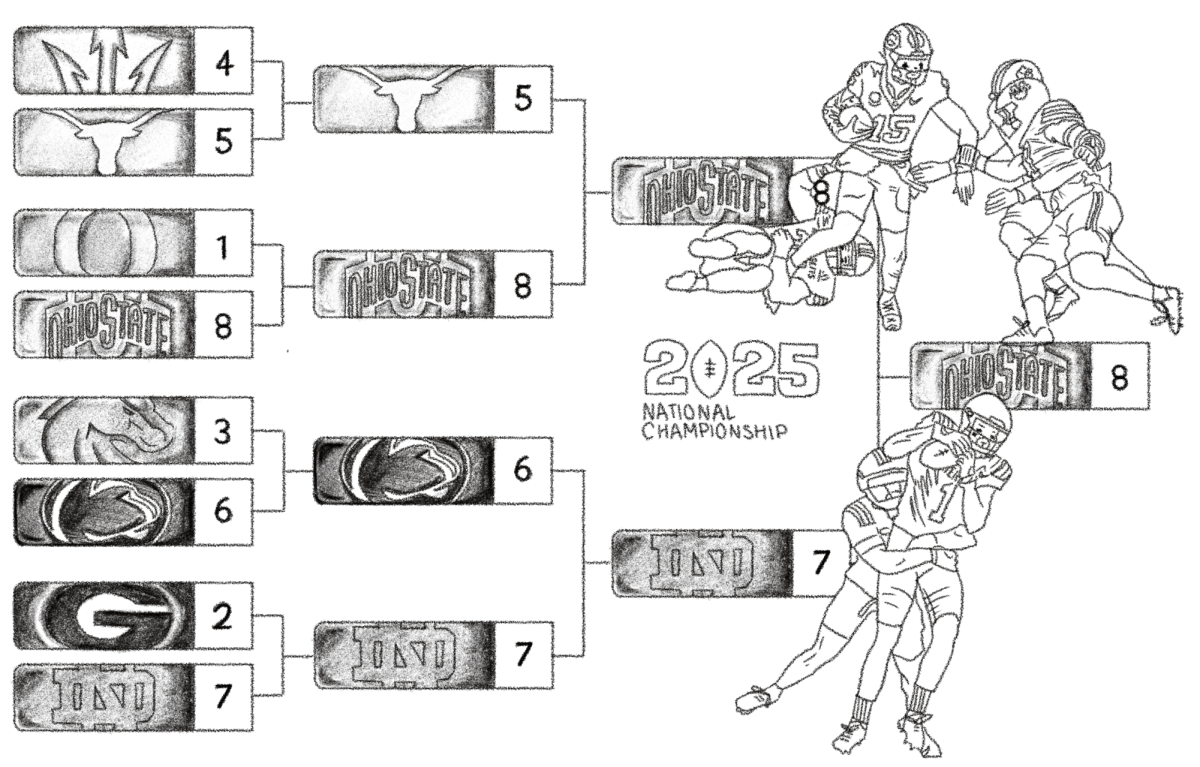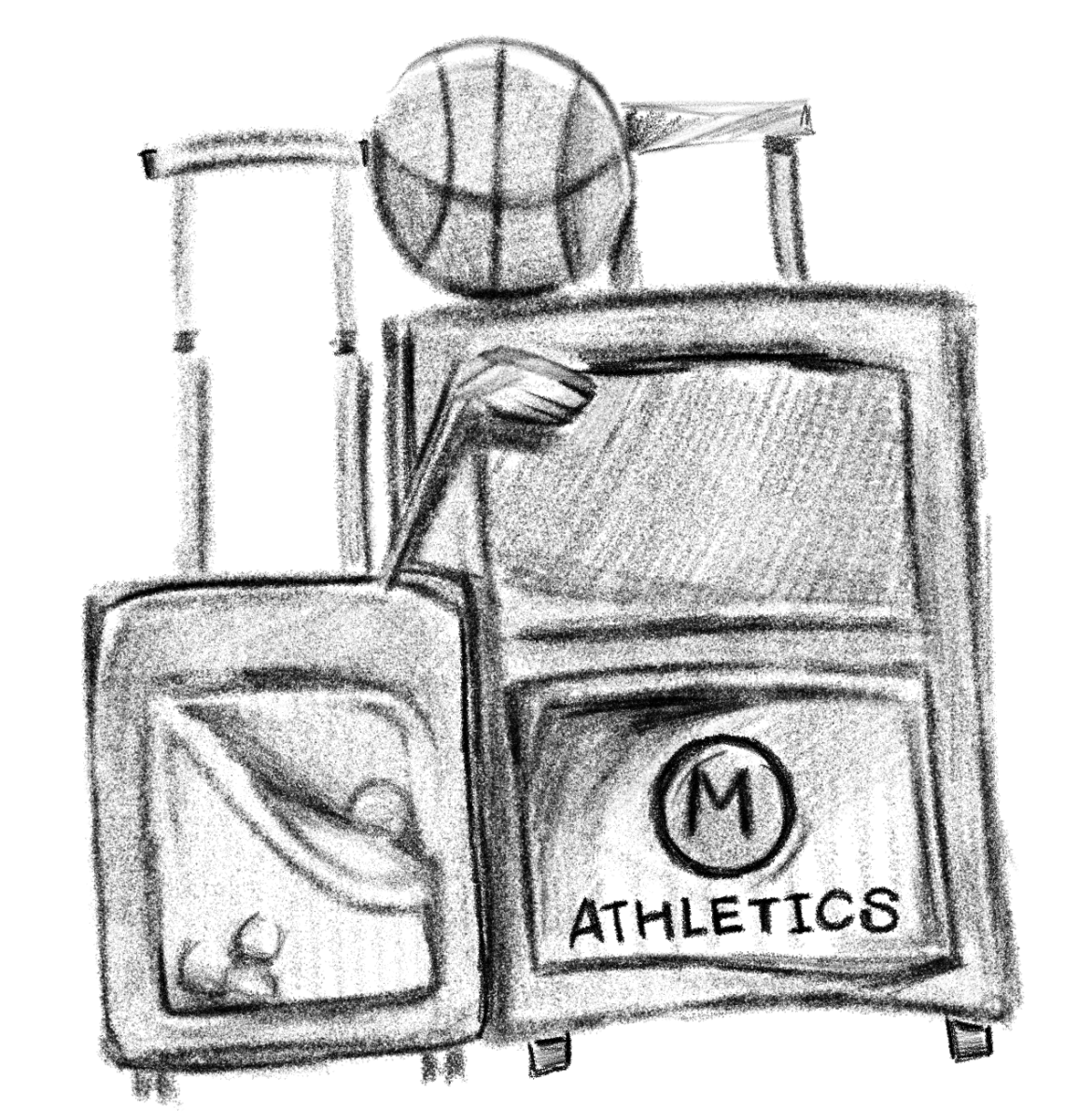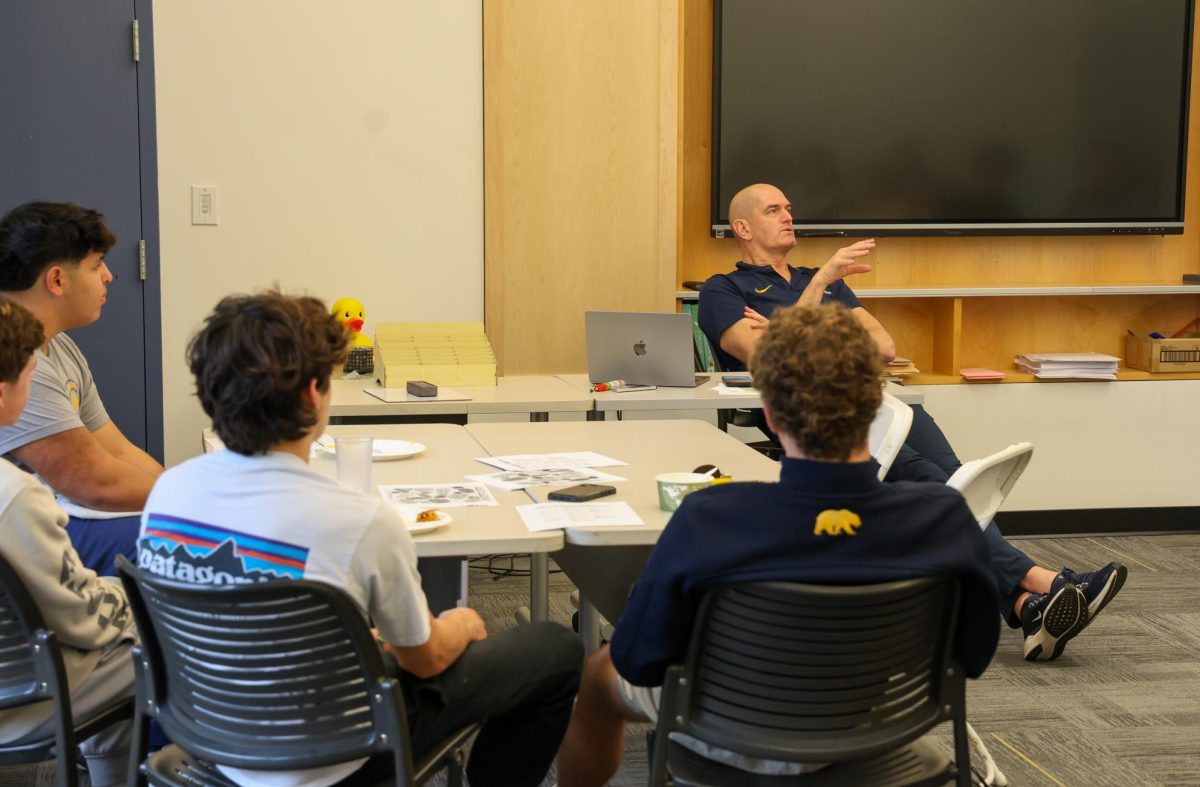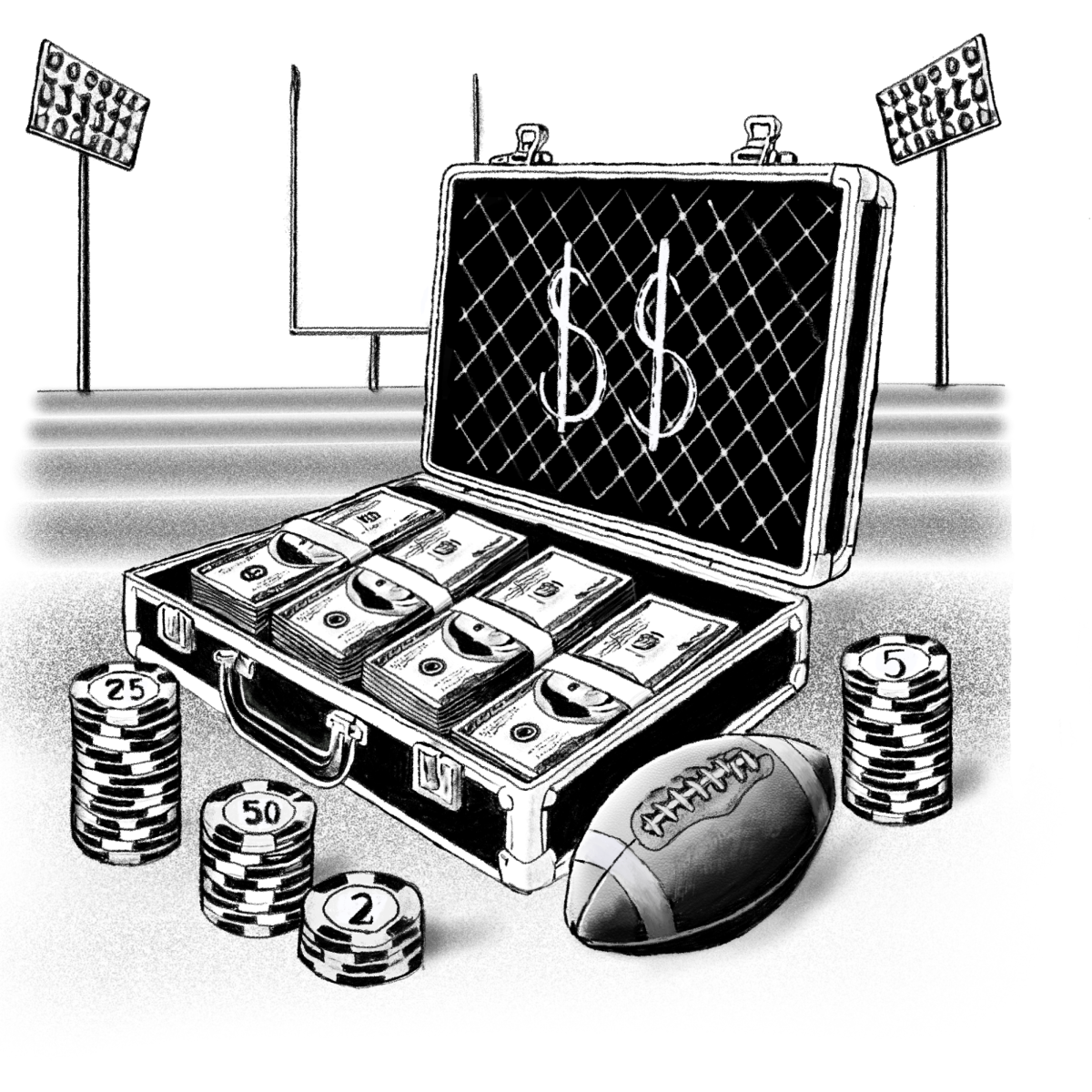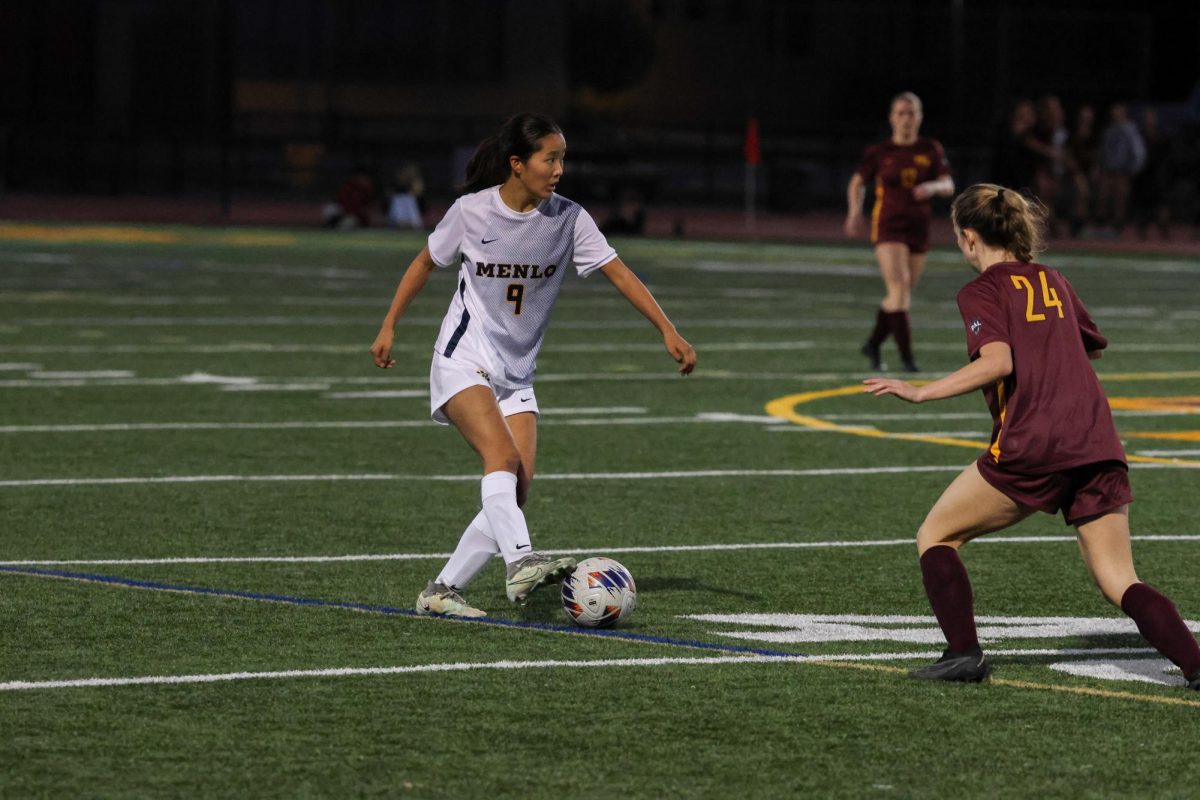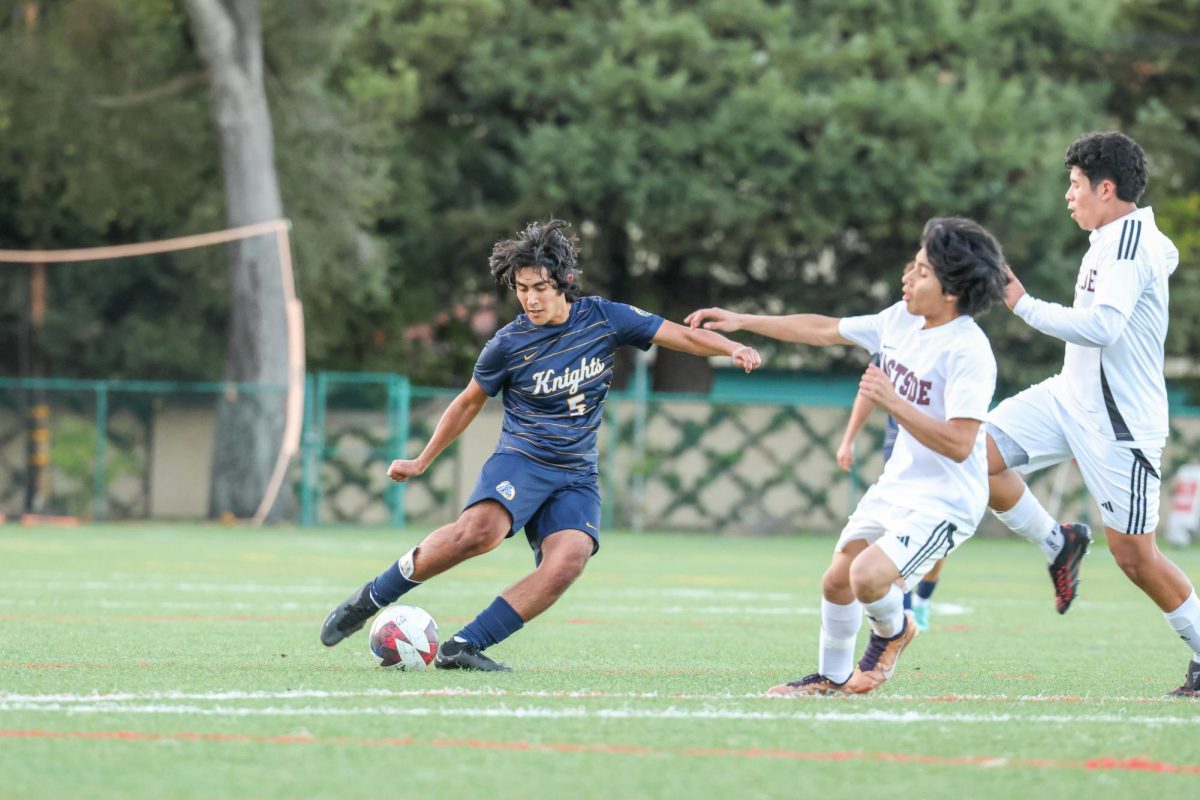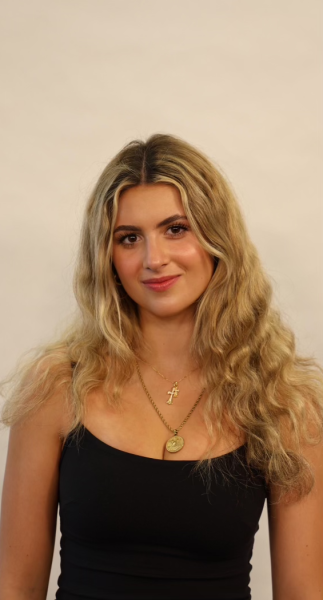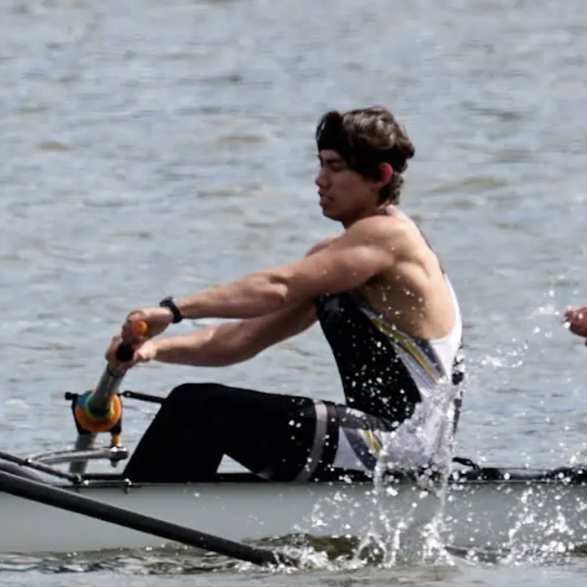
Very few athletes switch their primary sport during their last year of high school. Even fewer commit to play in a Division I league for that sport. Senior Sam Warman, however, did both. After years of swimming competitively, Warman transitioned to rowing and committed to the Massachusetts Institute of Technology in April.
Warman spent his childhood doing club swimming as his primary sport and also swam varsity for Menlo all four years. The summer before his senior year, however, he decided to try something new, encouraged by a few of his swim friends who had switched to rowing and enjoyed it greatly. “A lot of swimmers transition to rowing, especially at the end of high school and in college,” Warman said.
Though Warman still enjoys swimming and does it for cross-training, he was open to the idea of rowing because he felt it was time to make a change. He was apprehensive about the time commitment during the infamously-hectic first semester senior year; “It’s definitely a big leap of faith to try to switch [sports], especially going into senior year with college apps and stuff,” Warman said. “But I’m so glad I did.”
Warman weighed offers from various Division I schools before he and his family decided that MIT would be the best fit for him, due to both the academic and athletic opportunities. “I can do really cool stuff academically, […] like work on a moon mission or robotic hands or something,” Warman said. “But I still get the experience of, you know, rowing on the Charles [River] and playing a DI sport.”
His father, who rowed in high school, had been eager for Warman to try the sport for a while, but it didn’t appeal to Warman at first. However, Warman ended up loving the fact that rowing is both a team sport and intense cardiovascular training that requires personal discipline. “You’re going all out, pushing to the brink but also you have eight other guys in the boat,” he said.
To Warman, many are put off by rowing due to the fact that it comes off as a tedious and painful activity. “But to me, that’s the beauty of it,” he said. “From day one, and every single day after that, the sport asks you ‘How far are you willing to go?’ You just need to answer, ‘yes.’”
Warman considers the highlight of his rowing career to be his very first race, in which he and his team placed first after a hard-fought battle. His athletic journey hasn’t been without obstacles, however. In his team’s regatta for the US Southwest championships on May 4, they were beaten by 0.23 seconds after being ahead the entire 2000 meter race, and thus didn’t make the cut for nationals. “But something I realized getting off the water was that, even though we lost, I wouldn’t have traded that experience for anything else,” Warman said.
Warman is unsure what his future looks like in terms of rowing, especially since there’s no professional rowing league, but he intends to use his time at MIT to improve and see if he can continue with the sport afterward. “Because I’m so new to the sport, I don’t think I really yet know how far I can go with it,” Warman said. “And that’s definitely something I’m interested in finding out.”


